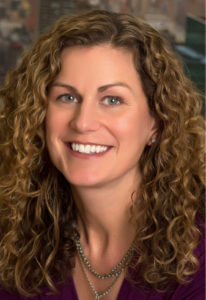What is your greatest weakness? What are your main areas for improvement? What skills or attributes are you working to develop?
These are all variations of the same thing, and it’s one of the basic job interview questions you’ll need to answer with confidence.
So, what exactly is your interviewer trying to uncover?
The hiring manager wants to get a complete picture of who you are and what you’re like to work with. If they only ask about your strengths and achievements, they have just part of the story. They want to know that you’re someone who can recognize their own development areas and more important, how you manage them.
What Not to Say
“I really can’t think of any weaknesses” is the last thing your interviewer wants to hear!
No one is professionally flawless, and you want to show you thought about this question.
Avoid using clichés like, “I’m a perfectionist” or “I work way too hard.” An employer is going to see right through that!
Instead, use these guidelines to answer “What is your greatest weakness?”:
Be Genuine and Say What You’re Doing About It
Mention something that’s real, and then talk about how you’re addressing the issue. This helps you show that you’re aware of your imperfections, yet they can really be a strength.
Here are a few examples from real job seekers I’ve worked with:
“Sometimes I get frustrated when someone on my team isn’t pulling their weight.”
That comes from the heart, right? Most people can relate to this on some level.
Addressing the weakness, this job seeker said, “When this happens, I talk with the person directly to make sure I’m not missing anything, see whether there’s anything I can do to help them, and move forward. Communication is almost always the cure to any frustration I may have felt.”
Or take this example:
“As a senior level manager, I spend more time on defining strategies that will help our business move forward. I’m just not great with the details.”
Here’s how she handles this shortcoming:
“In the past, I’ve teamed with someone who has a complementary skill set or I’ve allotted headcount to hire someone to help keep me on track.”
Here’s another:
“I’m a very calm person. Sometimes people perceive that I don’t care or that I’m not passionate.”
Here’s how he addresses the issue:
“I make a point to verbalize my passion and concern for the project or situation so there’s no question about my stake in the project or the results we can achieve.”
All three job seekers talk about an authentic issue, yet show they’re aware and proactive.
More Ideas on How to Select Your Weakness
Technology
Are you learning technology that would really help you do your job better–that augments the required knowledge for the role? Or, if you’re a senior-level manager, mentioning that you’re investing time understanding how things work helps you be more fluent in your conversations with those you manage.
In each case, you’re developing knowledge and filling a gap, but it’s not central to the job and it demonstrates your commitment to continuous learning.
Ongoing Professional Development
Are you working toward some additional certifications or pursuing continuing education that’s valuable in your area of expertise or industry? Even though it’s in progress, these pursuits are perceived as a positive for an employer.
Public Speaking, Presentations & Communication
Even the best communicators work on improving their communication skills. Whether you’re working to make more dynamic or effective presentations with your coworkers or team, externally with customers, or promoting your company at trade shows, association meetings, or conferences, strengthening this professional muscle is another positive.
Choose Something that Isn’t Central to the Job
Finally, make sure to mention something that isn’t central to the job. If you’re lacking a key skill or simply don’t like a core aspect of the position, then you should reassess your target roles so that you’re positioned for longer-term success.
The next time you’re asked “What is your greatest weakness?” be authentic, show that you’re self-aware, and demonstrate your commitment to personal and professional growth. This will impress your interviewer and help them better visualize you as their next employee!
If you need help tackling this question or others that might come up in the interview, then please book a discovery call with me. I’d love to work together.

I’m Dalena Bradley, job interview and career marketing coach dedicated to helping you communicate your value, stand out from the competition, and win the job!
Contact me to discuss how we can collaborate.

